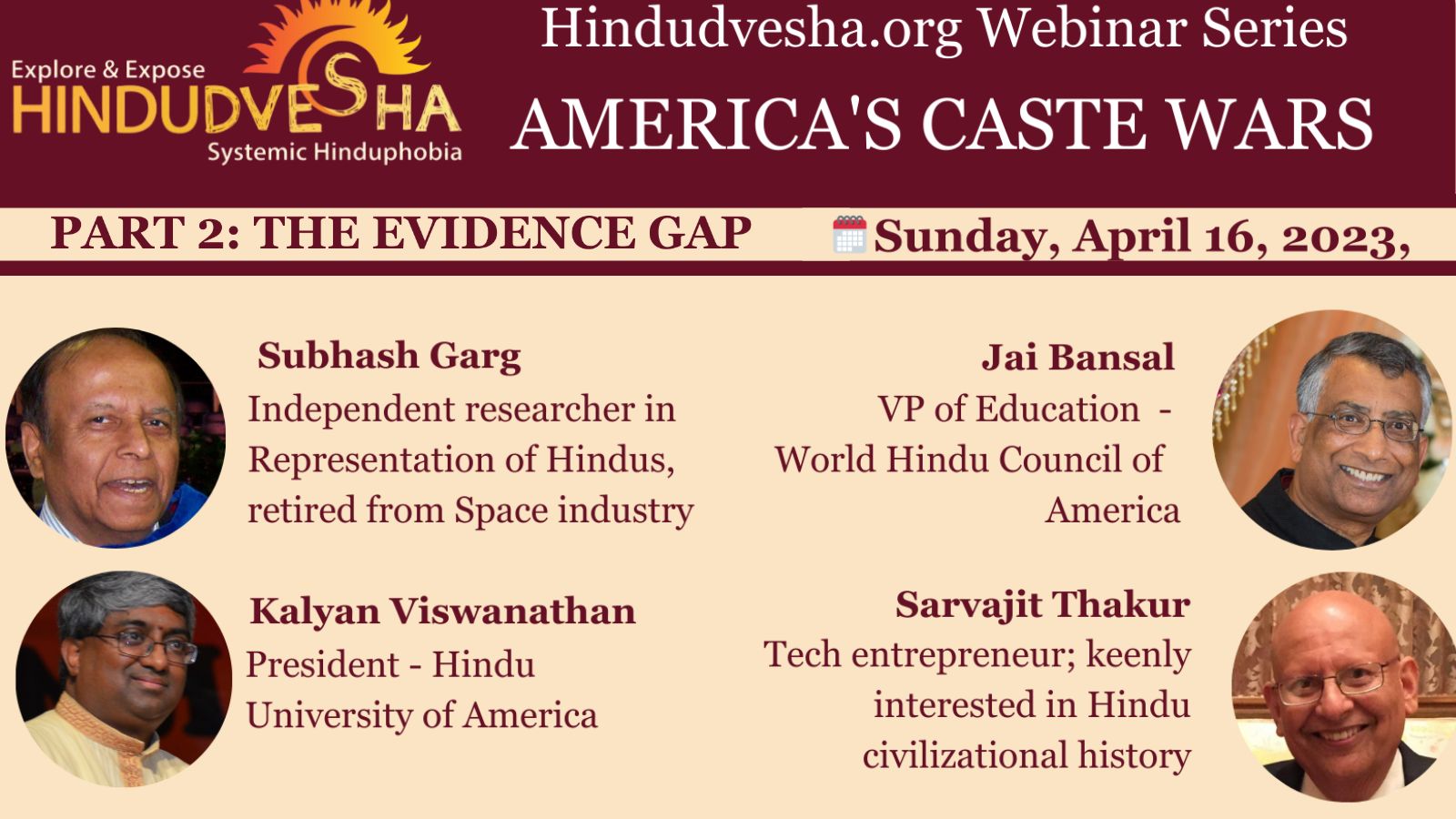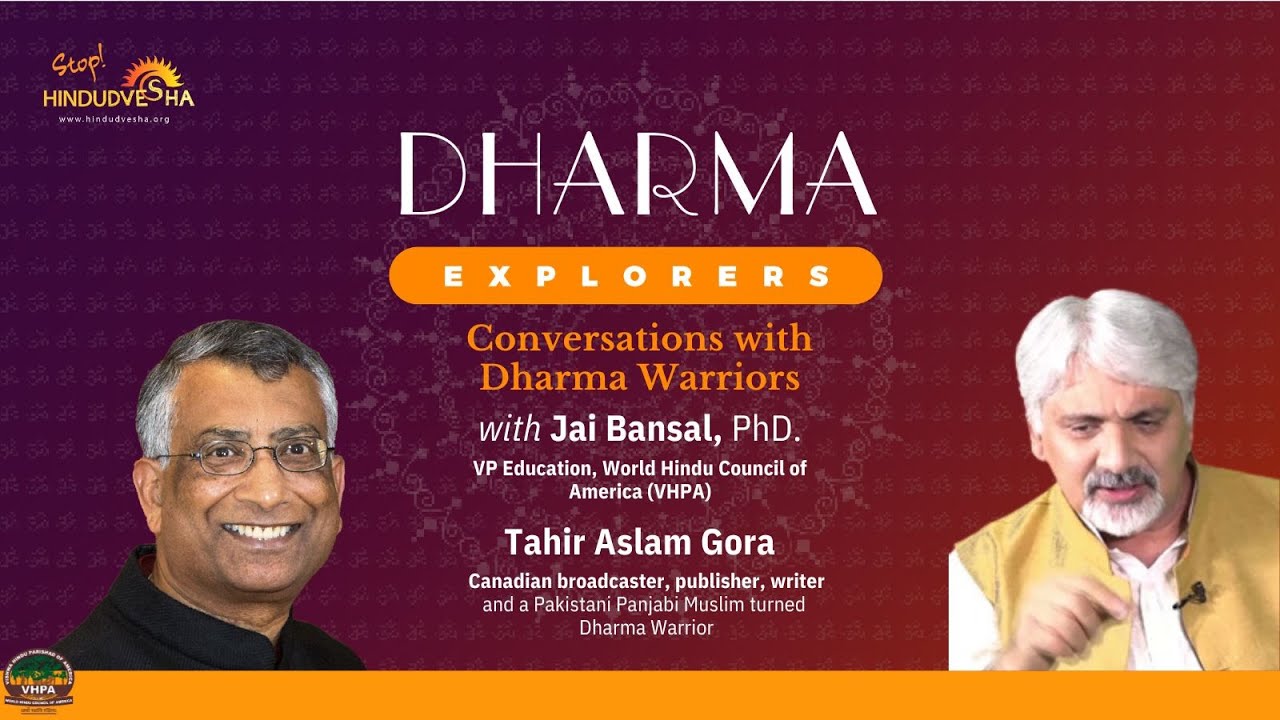

America’s Caste Wars – Part 1: Myth versus Reality (Webinar)
The issue of caste has recently emerged as a hotly debated topic within the Hindu American community and the broader Hindu diaspora. The “Caste System” library on Hindudvesha.org, a platform dedicated to addressing the challenges faced by Hindus in America, has been instrumental in fostering discussions on this subject. These discussions aim to distinguish between myth and reality and to explore the contemporary relevance of the caste system, particularly in the context of North America and potentially on a global scale. This is a brief summary of the discussions presented in the “Myth Versus Reality” webinar and the insights provided by the panelists, shedding light on the complexities of the caste issue.
The discussion began with a presentation by Dr. Subash Garg, who shared insights from his book, “Caste of Merit,” a book that challenges the misconceptions and myths surrounding the caste system, underlining the prevalence of falsehoods in society and their far-reaching implications.
Dr. Garg highlighted the misrepresentations and stereotypes associated with the caste system, particularly those that originate from outside India. These myths tend to portray the caste system as rigid and inherently unequal, propagating stereotypes of unchallenged authority among the upper castes and a lack of social mobility for the lower castes. However, Dr. Garg emphasized that these myths do not accurately reflect the progress made in India, such as the introduction of reserved seats in educational institutions and government jobs, which has empowered marginalized groups.
Moreover, Dr. Garg raised concerns about the trend of adding “caste” to non-discrimination clauses in various institutions and policies. While this may appear to be a straightforward step, it introduces complexities. The objection lies in the fact that “caste” is specifically associated with Hindus, thereby singling out one religion. This practice has far-reaching implications and may inadvertently impact various aspects of society.
The panelists also highlighted how this issue has extended to various domains, including corporations like Apple, which have banned caste discrimination, the political landscape, and the media. They noted a concerning shift in activism, which, after the Black Lives Matter movement, seems to leverage hate and division rather than promoting love and unity. The urgency of responding to these narratives with informed discussions and actions was underscored.
The conversation subsequently delved into the influence of foreign funding on academic institutions, emphasizing the differences in approaches taken by China and India. Notably, institutions like Harvard and other prestigious schools benefit from substantial funding from Indian industrialists. This funding often contributes to studies on the Indian social structure, with caste being a central focus. However, the panelists expressed concerns about the negative implications of this, particularly when such studies tend to adopt a critical perspective.
In contrast, Chinese entities primarily fund STEM research, abstaining from contributing to research on Chinese social structures. This divergence in funding approaches reflects how these academic institutions benefit from foreign financial support. While China benefits from advancements in STEM research, India’s supporters may unwittingly contribute to detrimental perspectives that harm India and its diaspora.
A critical aspect of the discussion focused on the need to distinguish between the narrative surrounding caste discrimination and the actual practices in India and abroad. It was emphasized that, while discrimination does exist in society, linking it to Hinduism as an intrinsic feature is misleading. The conflation of exceptions with norms often perpetuates these misconceptions.
Finally, the treatment of Dalits in India and abroad was addressed. India has implemented affirmative action policies and reservations to mitigate discrimination. The Constitution grants equal voting rights to all adults, and a robust reservation system is in place. These measures aim to reduce discrimination and promote social justice. In the context of treatment abroad, caste does not significantly affect people’s lives, and the narrative of discrimination is not relevant outside India.



